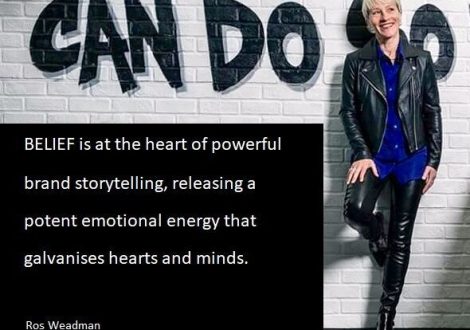As we say goodbye to 2022, let’s end on a high with some of my most popular reputational insights and inspirations this year to take forward into the new year.
Brand
- Brand is an inside job of which reputation is an external manifestation. Understanding that the principle of cause and effect applies to brand and reputation puts you in the driver’s seat of shaping how you’d like to be perceived.
- Integrate and align culture with communications, customer experience and citizenship. When purpose, beliefs and values (culture) are embedded within marketing messages, branding and channels (communications), then faithfully delivered upon through the product/service (customer experience) and corporate social responsibility activities (citizenship), the consistency of intentions, words and actions fosters trust, builds credibility and enhances reputation.
- Personal branding is not being fake. It simply amplifies more of who you already are but in a more intentional, consistent and aligned way.
Value
- Reputation is the ultimate currency. Reputation may be intangible but research shows it drives your most tangible results in business, including greater ability to attract and retain the best staff, higher perceived value, greater customer loyalty and more likelihood of being given the benefit of the doubt in times of crisis.
- Your value is in how you close a gap. Define a compelling value proposition that closes the gap between your customer’s current state and their desired future state.
- Value your professional self-worth and others will too. When you truly believe you are good enough and highly value your professional self-worth, you will have the clarity, confidence and certainty to determine a price that reflects your unique value.
Positioning
- Be remarkably different. Successful brands have a strong sense of identity, powerful message and project a unique style, attitude and voice.
- Own a brand space in the marketplace. Identify a brand attribute that creates a compelling point of difference for your brand.
Communication
- Speak the language of your brand. Use words and tonality aligned with your brand’s image, beliefs and values across all marketing channels and customer touchpoints.
- Communication is about connection not information. Apply a relatability lens to your words, have a simple message that’s relevant to people’s lives today and ensure marketing collateral is accessibly written.
- You’re communicating even when you’re not. Every phone call you don’t return, every email you don’t respond to, every update you don’t give is sending a reputation-defining message.
- Prioritise internal communication. Communicate openly, truthfully and regularly, welcome two-way dialogue, be a trusted source of information and you’ll enhance your employer of choice status.
- Declare your manifesto. A brand manifesto becomes a powerful beacon, attracting those whose beliefs and values are aligned with yours.
- Every brand communicates but not every brand is heard. Enhance the receptivity of your message with the following seven criteria:
- purpose – begin with the end in mind by asking ‘what is the desired outcome of this message?’ to educate? to inspire? to persuade?
- audience – direct your message to a specific target audience
- context – make your message relevant to what’s happening around us
- conviction – own a position that makes clear your beliefs and values
- simplicity – keep your message short and succinct to aid understanding and memorability
- reason – use logical reasoning to build credibility
- emotion – use language and tonality that evokes feelings.
Culture
- Stand for something. Companies that clearly identify their purpose as providing a societal benefit have reported that their customers are more loyal and their employees more engaged.
- The most powerful ‘whys’ are an expression of love. Love can be expressed in different ways through your ‘why’, depending on the contribution and impact you make on people’s lives through your work. For example, self-acceptance, connection, confidence, belonging, peace of mind and empowerment.
- Turn your core values into powerful statements of action. Core values expressed as short, actionable statements provide clarity and meaning about expected standards of behaviour for employees.
Decision-making
- If your CRO (chief reputation officer) isn’t consulted on key business decisions, you’re taking your reputation for granted. While the PR and strategic comms team is expert at gathering reputational intelligence, developing reputation strategy, understanding stakeholder communication needs, crafting key messages and managing the process – reputation management must be led from the top.
©Ros Weadman 2022 Ros Weadman helps professionals and organisations to communicate their value, build public profile and enhance brand reputation. To receive this enews straight to your inbox, subscribe here. You can connect with Ros via email or by phone 1800 677 600.



